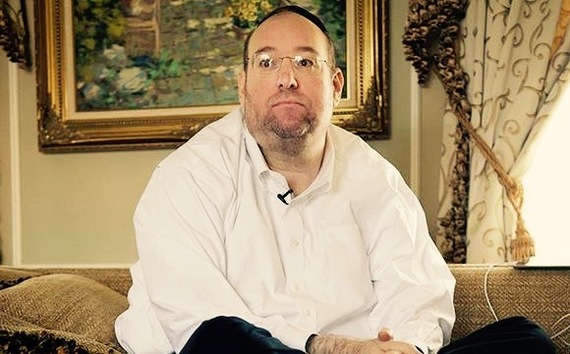
LA businessman Shlomo Rechnitz had the right idea when he paid $50 to each of the 400 U.S. solders when their paths unexpectedly crossed during a layover at an Irish airport. When he saw them eating army food while nearby passengers were eating at the more upscale, trendy and appetizing restaurants, he knew he had to step in and make a difference. In the video, now trending on YouTube, we see Mr. Rechnitz sharing his heart felt words of appreciation for the American soldiers, the work that they do and the bravery they exhibit on a daily basis. And this isn't the first time Shlomo has offered his generosity either. It's become quite a habit of his.
So why should we all take a page out of Shlomo's charitable book? I think you'll find the research pretty impressive!
Generosity may be the single most important way to achieve human happiness. When we give to others, materially, physically or emotionally we're able to create a powerful emotional bond between people that can spread true feelings of joy. Even something as small as a warm hearted and accepting smile can spread the spirit of kindness. And since emotions are contagious, it can produce what's called a positive contagion effect, which simply means, these good feelings begin to spread.
This type of altruistic giving has two major effects: It creates happiness for ourselves and happiness for others. That's a pretty winning combination. According to Paul Zak, the founder of Claremont Graduate University Center for Neuroeconomics, although we typically describe giving as coming from the heart, it actually comes from the brain. It's the subgenual cortex part of the brain, to be exact, that gets triggered when people do something helpful and feel good. Our brain reacts to preforming these charitable acts by releasing the feel good chemical called dopamine. This influx of dopamine into our bodies creates a warm feeling often referred to as a helpers high.
Our altruistic roots appear to have an evolutionary purpose as well. Humans couldn't have survived in nature without the help and charity from the fellow members of their group.
So, if we're really wired to be altruistic, why do people like Shlomo appear to be more of the exception than the rule? Well, the answer is a little bit tricky. There are different kinds of altruistic acts. There's reciprocal altruism, where we give with the assumption that we'll get something in return. And Kin altruism where we give to family and friends over people we consider strangers. There's also another component to our evolutionary nature, which might explain it. It's connected to our survivor of the fittest drive. This drive focuses on the more selfish, competitive and ruthless aspects of our personality.
The research is very clear. Selfless acts of kindness, like the one we witness Shlomo Rechnitz carry out is a wise habit to get into? Not only do acts of kindness allow us to show our network how appreciated they are, it also makes people happier in the process. Acts of kindness:
-Lead us to perceive others more empathically and compassionately.
-It allows us to experience people in a more positive way, too. We are inclined to find good qualities in those we are being kind toward.
-Being kind also helps us to promote a sense of connection to our community and others, which is one of the biggest reasons for our increase in this personal sense of happiness.
And being kind starts a chain reaction of positivity, which let's face it, we all could use a little bit more of these days.
Giving is contagious and can lead to a cascade of generosity and positive feelings. Even the act of thinking about giving or looking at words that inspire giving, can contribute to being more thoughtful and charitable. So let's hope Shlomo's acts of kindness trigger the contagion effect and inspire us all to be a little bit kinder and more appreciative during this year. The world could certainly use it.

